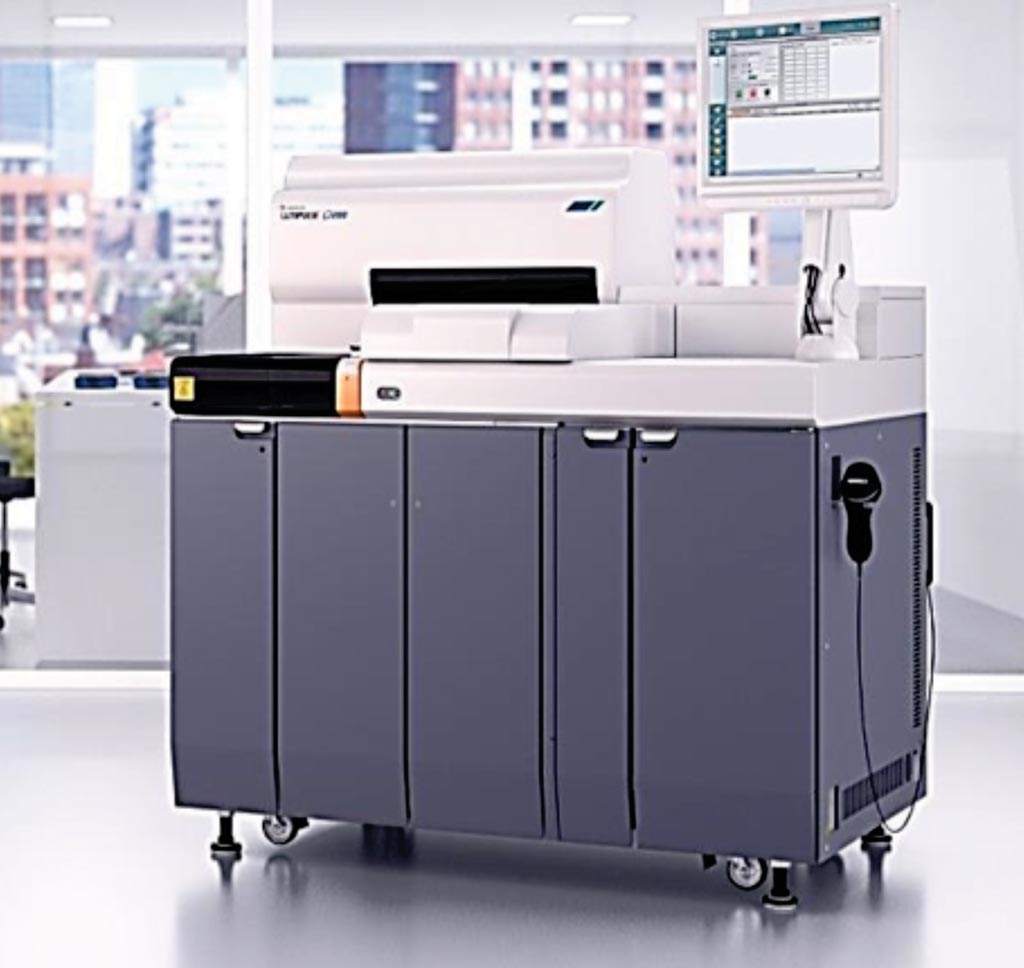Novel Procalcitonin Immunoassay Analytically Evaluated
By LabMedica International staff writers
Posted on 25 Jan 2017
The exact definition of sepsis has changed considerably over time, and remains controversial. This is probably due to the fact that sepsis develops as a continuum of severity, ranging from local infection, through bloodstream propagation to septic shock.Posted on 25 Jan 2017
Due to the steadily increasing use of procalcitonin (PCT) measurement for diagnosis and management of bacterial infections, the number of PCT immunoassays available on the diagnostic market has increased in recent years, with automated immunoassays replacing the former manual techniques.

Image: The LUMIPULSE G1200 is a robust mid-sized fully automated immunoassay instrument (Photo courtesy of Fujirebio Diagnostics).
Clinical biochemists at the University of Verona carried out an analytical evaluation of a two-step sandwich immunoassay for PCT in human serum and plasma. This analytical evaluation encompassed the calculation of the limit of blank (LOB), limit of detection (LOD), functional sensitivity, intra- and inter-assay imprecision, confirmation of linearity and a comparison with the ELFA immunoassay Vidas BRAHMS PCT.
The assay evaluated was the Lumipulse G BRAHMS PCT immunoassay adapted to be used on the LUMIPULSE G1200 system. The assay is based on ChemiLuminescent Enzyme Immunoassay (CLEIA) technology. Briefly, the PCT molecules present in the test sample bind to monoclonal anti-PCT mouse antibodies and to capture anti-calcitonin mouse antibodies coated on polystyrene beads, thus generating stable immune complexes and the luminescence is monitored at 477 nm. The assay displays an analytical sensitivity of 0.0048 ng/mL, a functional sensitivity of 0.0079 ng/mL and linearity comprised between 0.02 to 85.1 ng/mL and results are available in 30 minutes.
The LOB, LOD and functional sensitivity were 0.001 ng/mL, 0.0016 ng/mL and 0.008 ng/mL, respectively. The total analytical imprecision was found to be 2.1% and the linearity was excellent in the range of concentrations between 0.006 to 75.5 ng/mL. The correlation coefficient with Vidas BRAHMS PCT was 0.995. The diagnostic agreement was 100% at 0.5 ng/mL, 97% at 2.0 ng/mL and 95% at 10 ng/mL, respectively.
The authors concluded that the results of the evaluation of Lumipulse G BRAHMS PCT demonstrate that this technique exhibits excellent analytical performance, among the best of the methods currently available on the diagnostic market for routine PCT measurement. However, the significant bias shown by comparing the two immunoassays studied emphasizes that longitudinal patient monitoring should be always performed using the same immunoassay. The study was published on December 1, 2016, in the journal Practical Laboratory Medicine.














